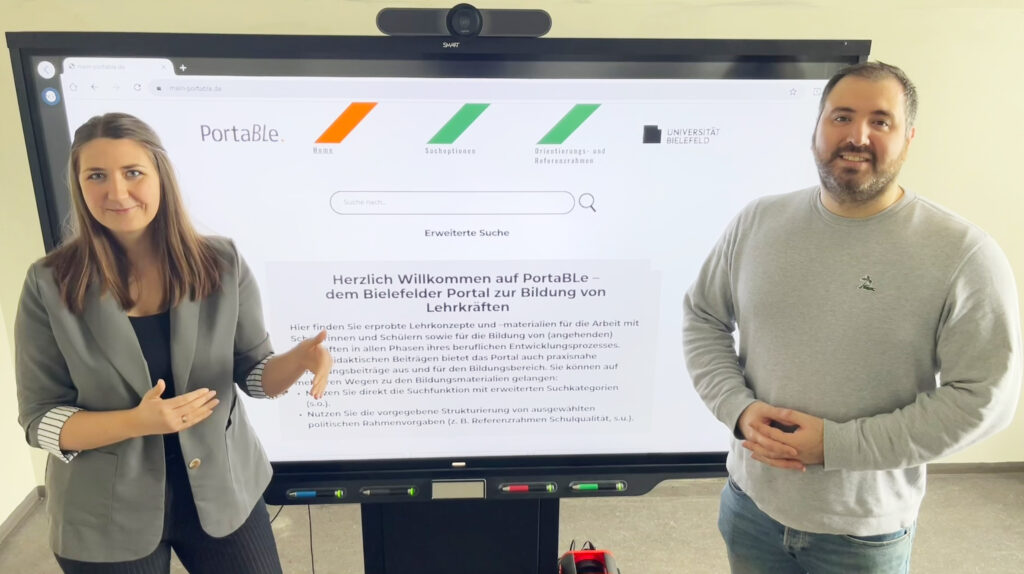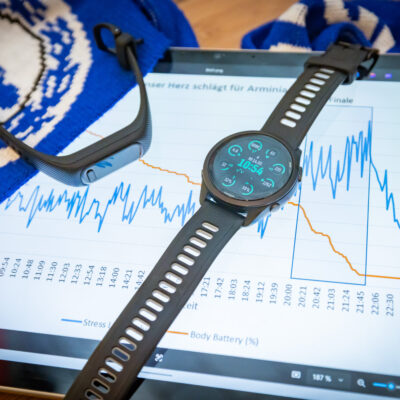The demands placed on teachers are constantly growing – whether dealing with inclusion, the integration of digital media or the goal of holistic education. This Friday (19 April 2024) the new online portal PortaBLe is launched to provide practical support for teachers at schools, universities and in further and continuing education. It was developed as part of the “BiProfessional” quality offensive project at Bielefeld University. Educators can find didactic materials and research articles from German-speaking countries on the platform. Thanks to innovative search functions, the content can be tailored to the individual situation.
PortaBLe brings together more than 600 contributions from around 900 authors. The materials cover the entire spectrum of teacher training topics – from diversity-sensitive education, motivation promotion, research-based learning and democracy education to subject-specific content. Users can use the intelligent search functions to filter the offers, for example, specifically for teaching materials for certain subjects or phases of teacher training.

© Bielefeld University
Suitable content can also be found based on framework guidelines such as the “Orientierungsrahmen Digitalisierung NRW”. “The link to central orientation and reference frameworks is particularly helpful for teachers from the second and third phase of teacher training in order to further develop their didactic arrangements within the framework of the training and further education logic,” says Professor Dr Martin Heinrich, former project manager of BiProfessional.
Why PortaBLe is unique
There are now several portals for OER. “What is special about PortaBLe as an OER portal are the search functions specific to teacher training as well as the didactic preparation and quality assurance of the contributions,” says Dr Julia Schweitzer, who is responsible for the content and concept of the portal at the Bielefeld School of Education (BiSEd) at Bielefeld University. The developed materials and research contributions come from teachers, lecturers and researchers in teacher training from all German-speaking countries.
“A major point of discussion with Open Educational Resources is quality assurance. Thanks to the link to academic journals, this is guaranteed with PortaBLe,” says Dr Lilian Streblow. As the former deputy project manager of BiProfessional, she was jointly responsible for developing the portal. The portal currently contains articles from the peer-reviewed journals “Herausforderung Lehrer*innenbildung” (HLZ), “Die Materialwerkstatt” (DiMawe) and “PraxisForschungLehrer*innenBildung” (PFLB).
Potential users were asked about their wishes for the portal in a study. The user study was realised by computer scientist and project team member Arash Haghani, who developed usage scenarios based on the results. “It became clear that usability and a minimalist design should be at the centre of the technical concept,” explains Arash Haghani.
Impulses for the entire teacher training sector
PortaBLe is aimed at all phases of teacher training: In addition to specific teaching materials, it also integrates contributions from educational research, for example on the professionalisation of teachers or innovative teaching-learning concepts. “The combination of scientific findings and practical suggestions makes PortaBLe equally interesting for students, trainee teachers, lecturers and researchers,” summarises Julia Schweitzer. Feedback from teacher training programmes and schools will be incorporated into further development.
[Translation generated with automated support]




